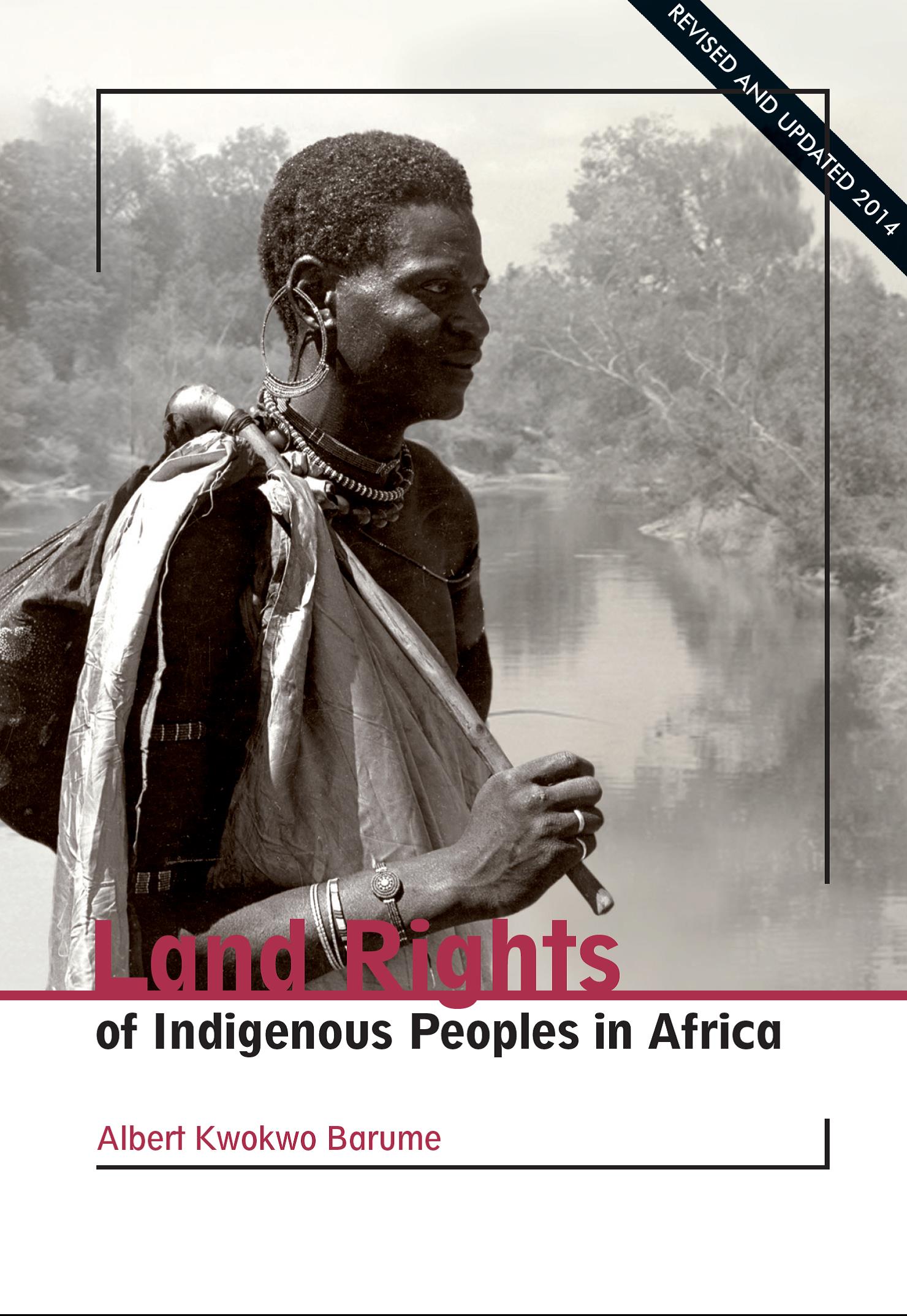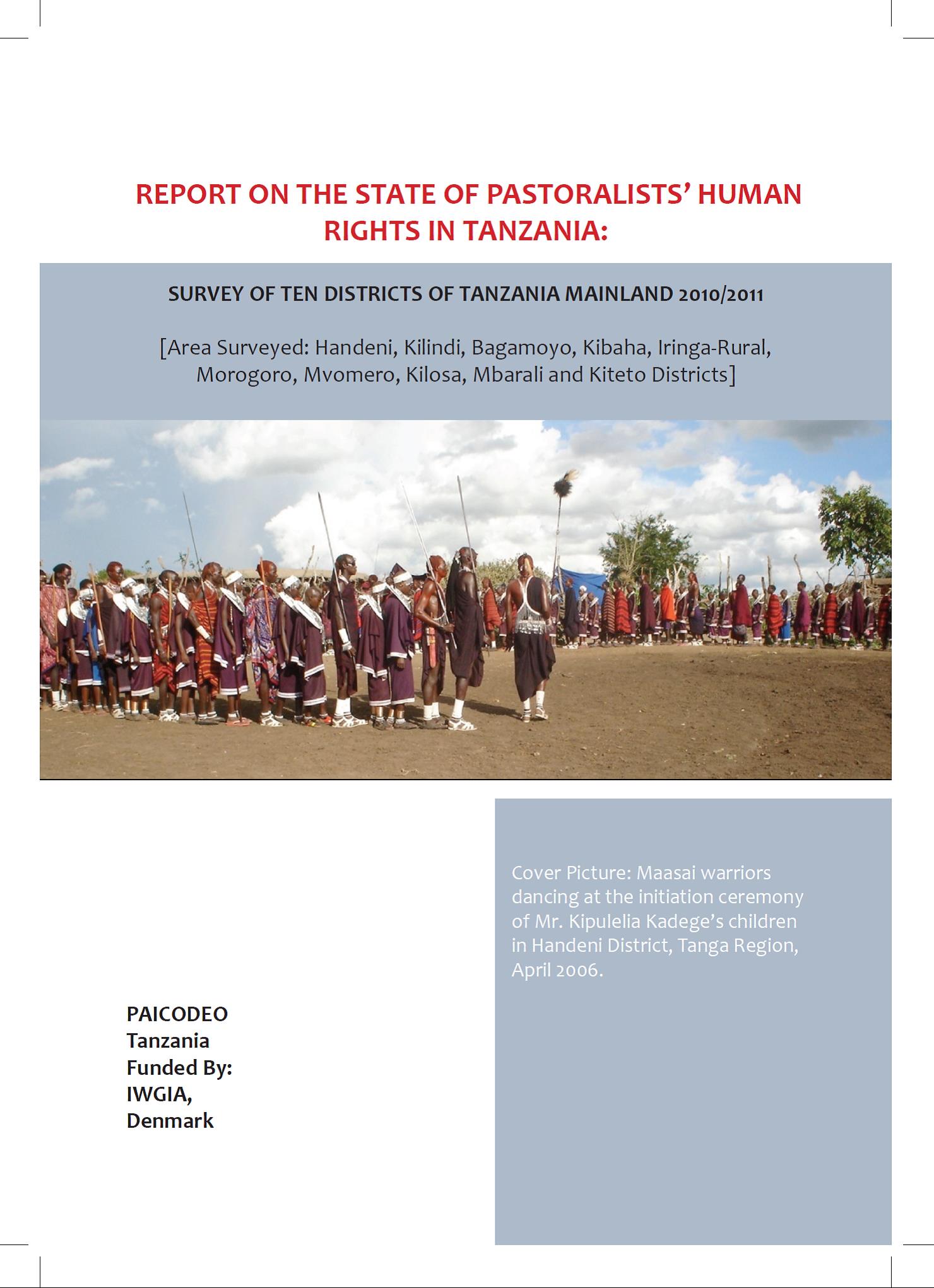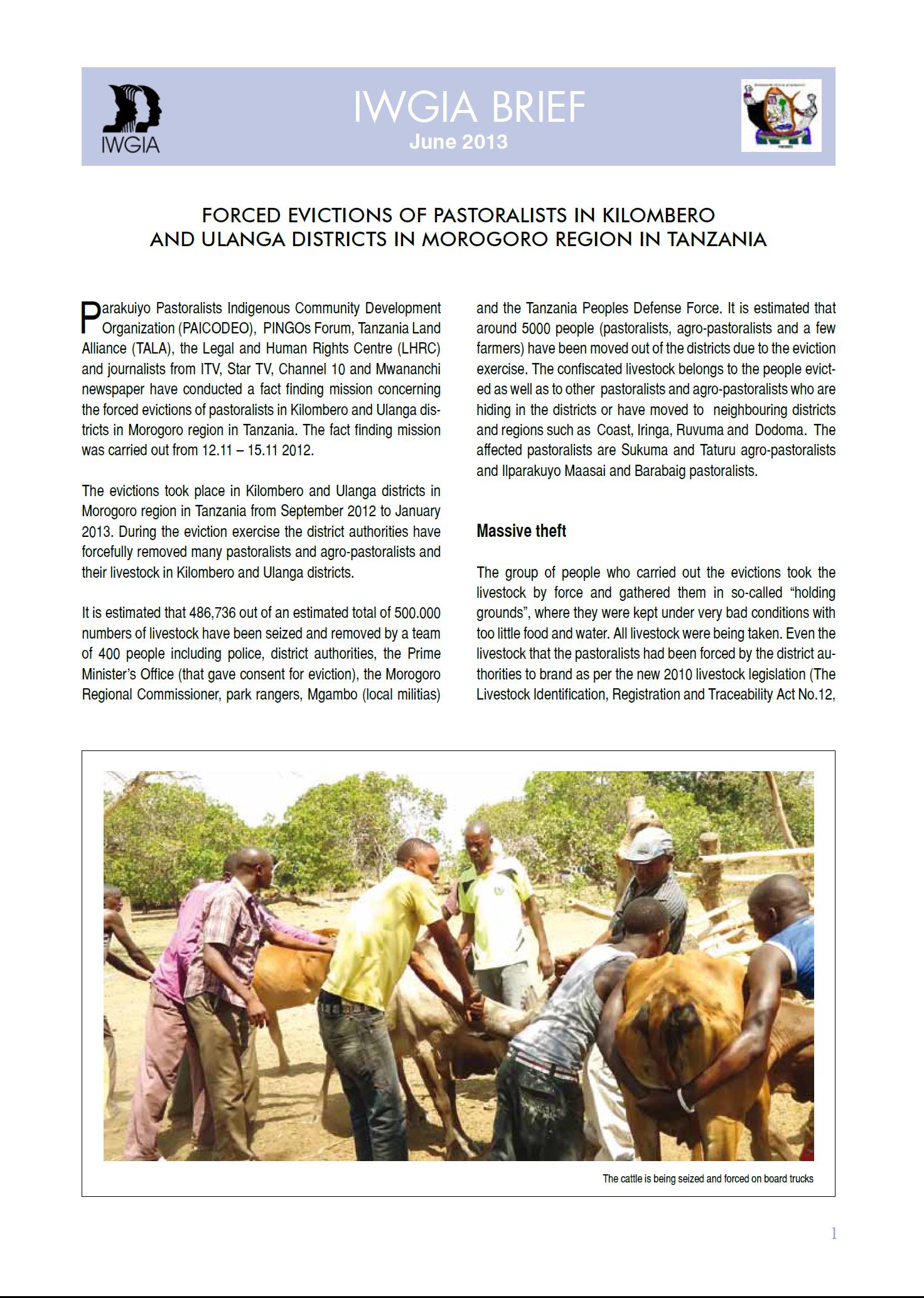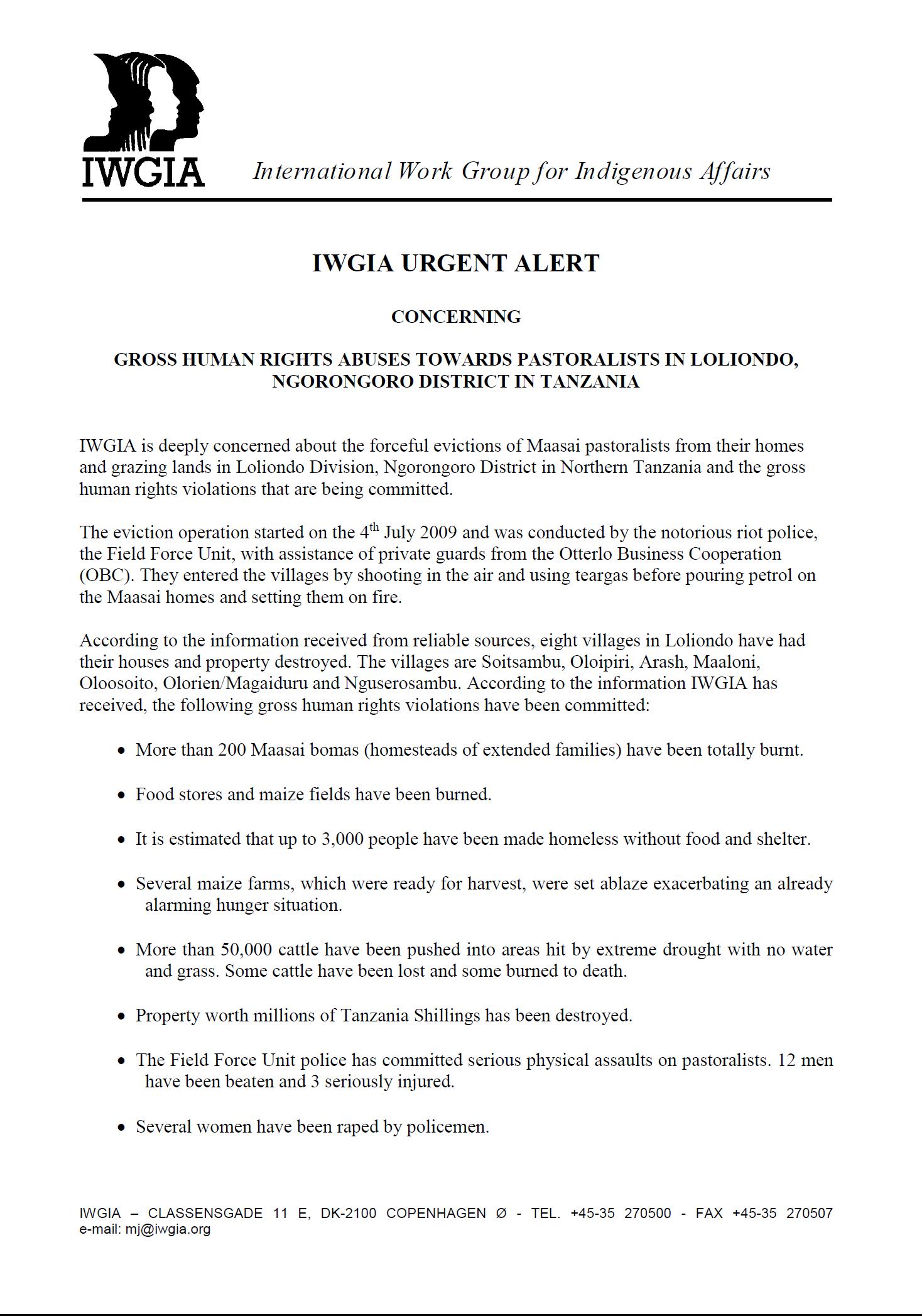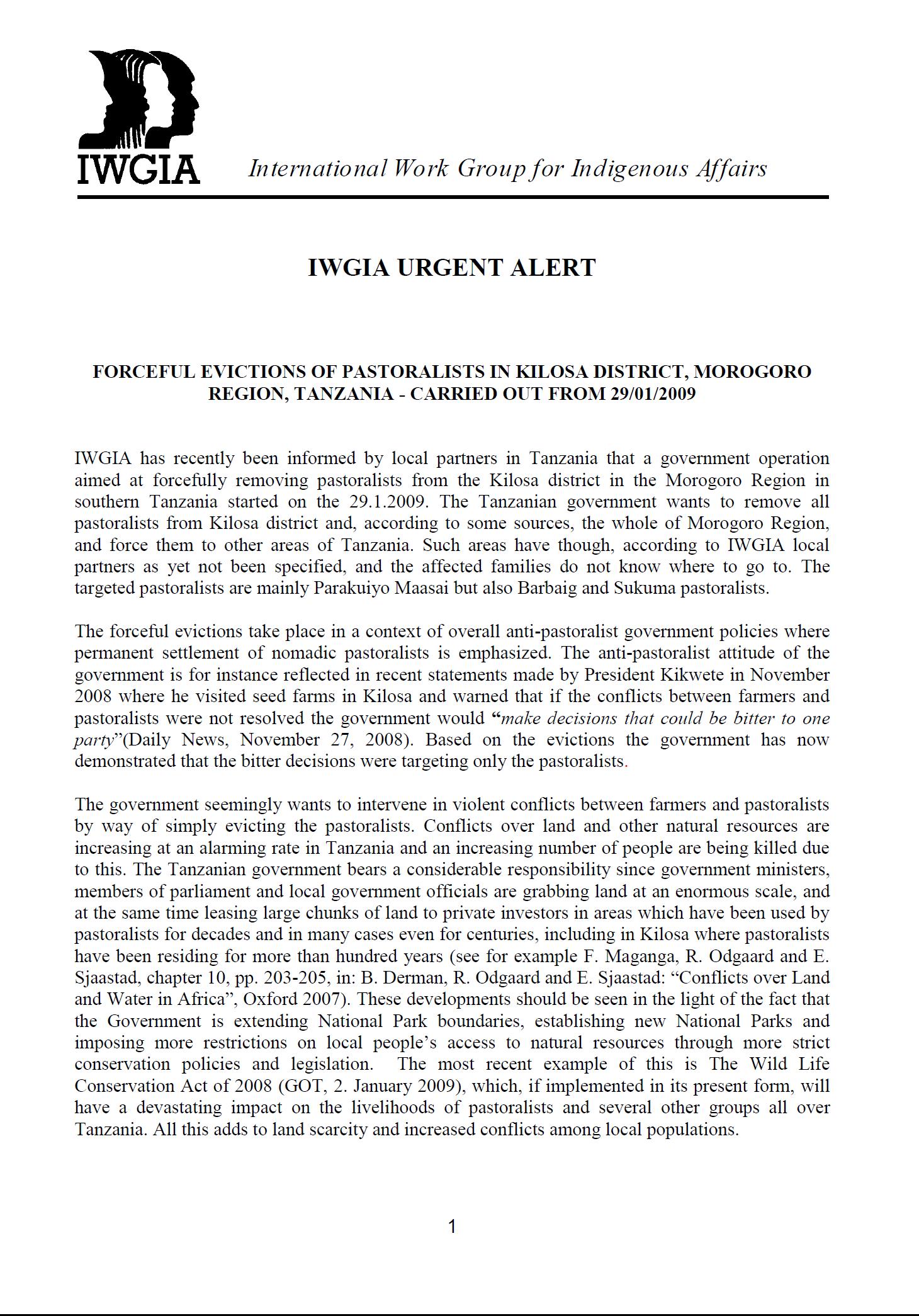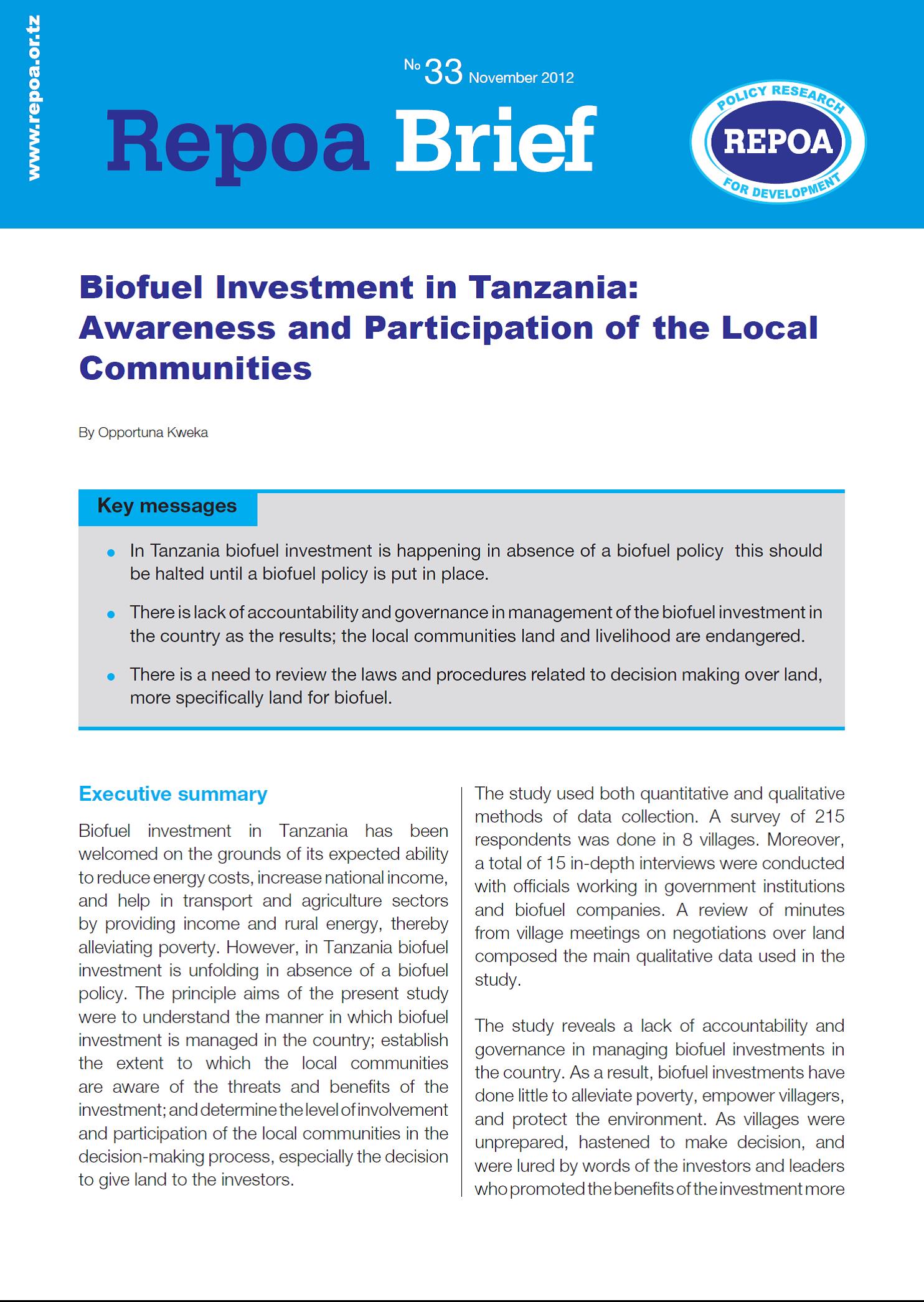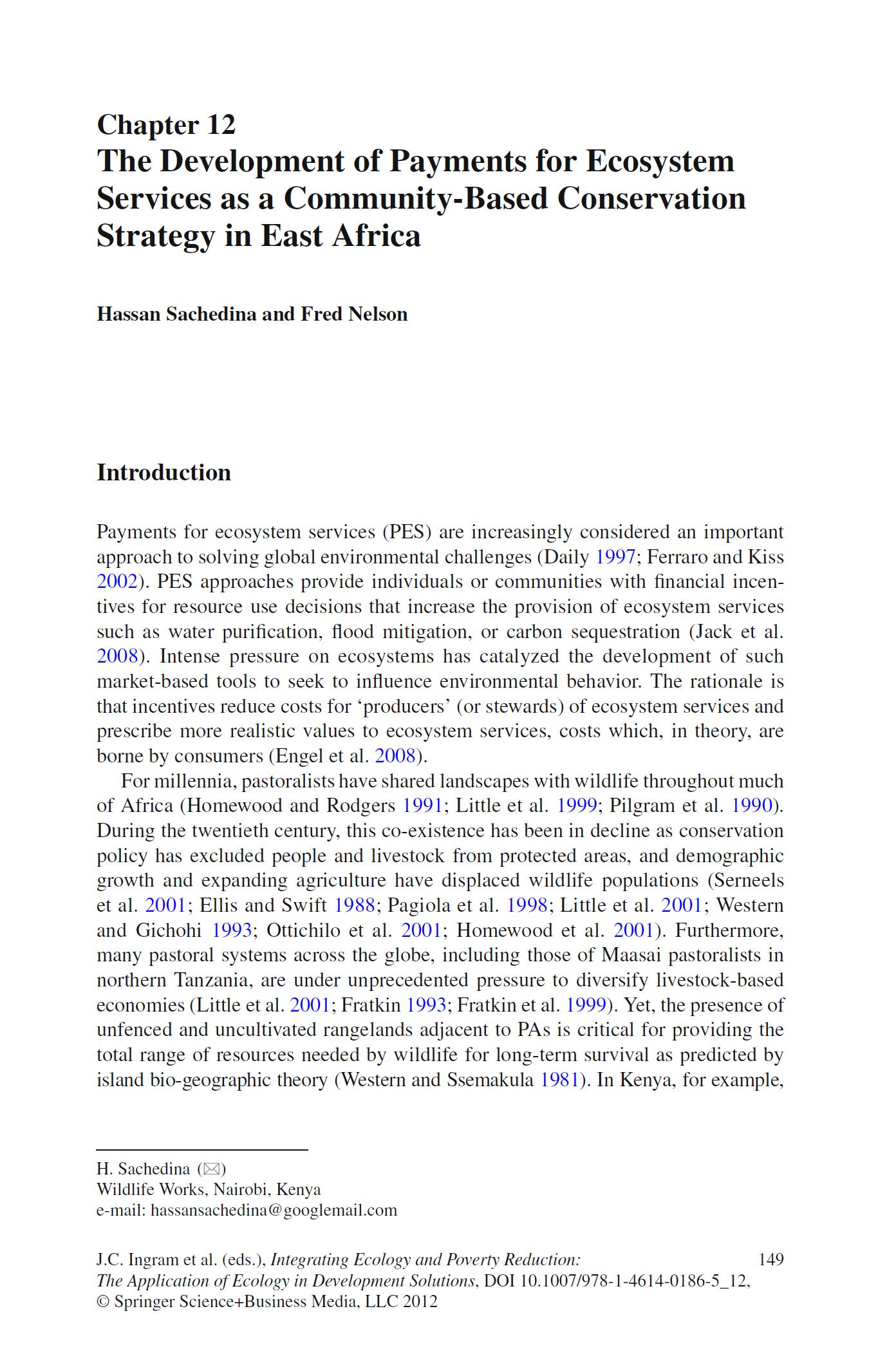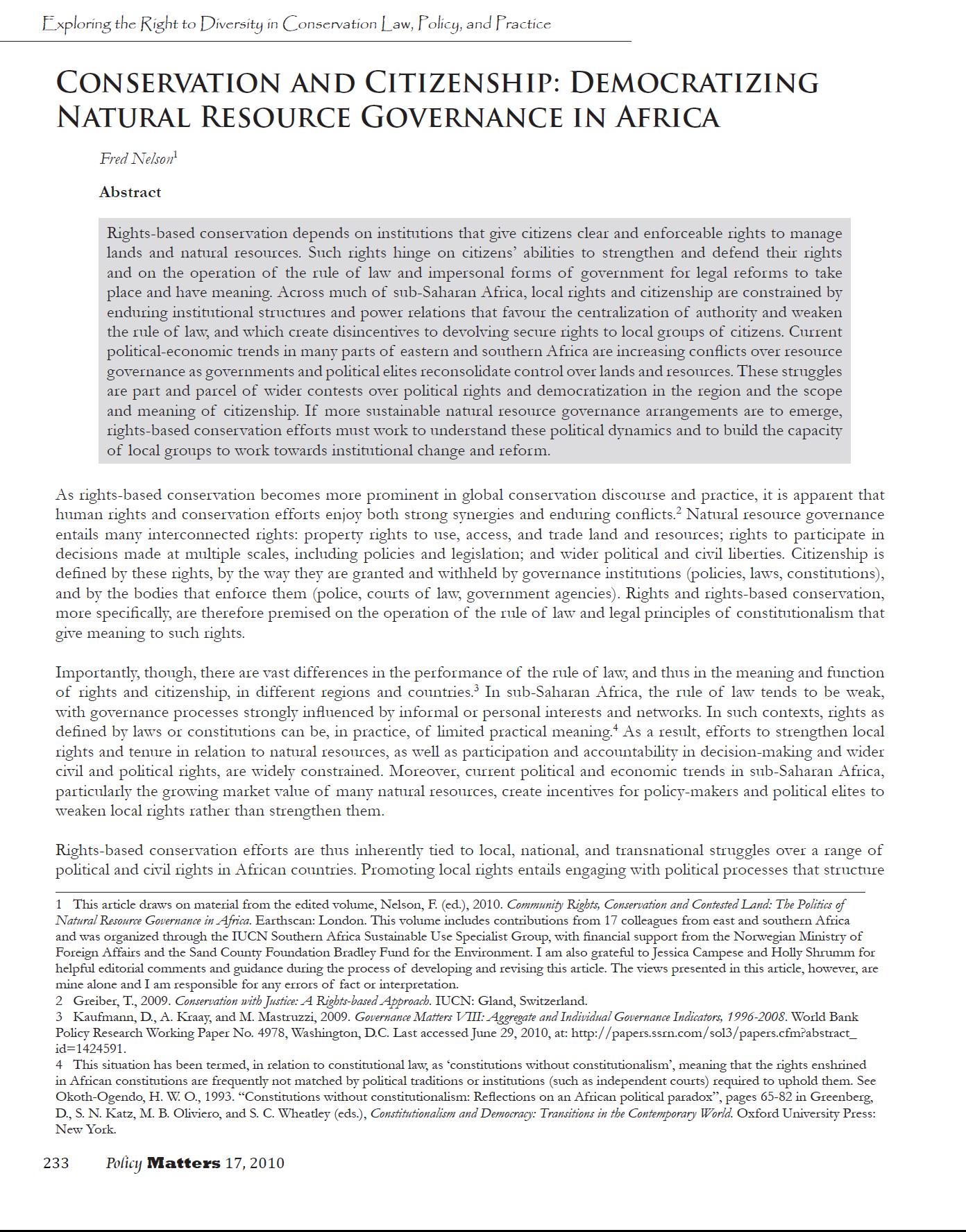
Topics and Regions
Godfrey Eliseus Massay is a lawyer and land tenure specialist.He has eight years of experience working on land rights and in the natural resource sector in Tanzania, and has written and published numerous articles on land rights in both national and international academic journals.
Details
Location
Contributions
Displaying 121 - 130 of 218Land Rights of Indigenous Peoples in Africa
This revised and updated edition of Albert Kwokwo Barume’s book from 2010 reflects some of the latest developments affecting Africa’s indigenous peoples and their land rights.
Report on the State of Pastoralists´Human Rights in Tanzania
Pastoralists in Tanzania are suffering from many human rights violations, including forced evictions from their lands. This report gives a comprehensive analysis of the human rights situation of indigenous peoples in Tanzania, and documents cases of human rights violations against Maasai pastoralists during 2011.
The information contained in this report is a result of a comprehensive survey and human rights analysis, which used both primary and secondary data collection methodologies covering a total of 10 districts and 18 villages.
Forced Evictions of Pastoralists in Kilombero and Ulanga Disticts in Mgorogoro Region in Tanzania
Parakuiyo Pastoralists Indigenous Community Development Organization (PAICODEO), PINGOs Forum, Tanzania Land Alliance (TALA), the Legal and Human Rights Centre (LHRC) and journalists from ITV, Star TV, Channel 10 and Mwananchi newspaper have conducted a fact finding mission concerning the forced evictions of pastoralists in Kilombero and Ulanga districts in Morogoro region in Tanzania. The fact finding mission was carried out from 12.11 – 15.11 2012.
IWGIA Urgent Alert concerning Gross Human Rights abuses towards Pastoralists in Loliondo, Ngorongoro district in Tanzania
This urgent alert is based on the forceful evictions of Maasai pastoralists from their homes and grazing lands in Loliondo Division, Ngorongoro District in Northern Tanzania and the gross human rights violations that are being committed.
The eviction operation started on the 4th July 2009 and was conducted by the notorious riot police, the Field Force Unit, with assistance of private guards from the Otterlo Business Cooperation (OBC). They entered the villages by shooting in the air and using teargas before pouring petrol on the Maasai homes and setting them on fire.
IWGIA Urgent Alert
IWGIA has recently been informed by local partners in Tanzania that a government operation aimed at forcefully removing pastoralists from the Kilosa district in the Morogoro Region in southern Tanzania started on the 29.1.2009. The Tanzanian government wants to remove all pastoralists from Kilosa district and, according to some sources, the whole of Morogoro Region, and force them to other areas of Tanzania. Such areas have though, according to IWGIA local partners as yet not been specified, and the affected families do not know where to go to.
Poverty and Changing Livelihoods of Migrant Maasai Pastoralists in Morogoro and Kilosa Districts, Tanzania
This study documents the plight of the Maasai pastoralists who have moved to Morogoro and Kilosa districts as a result of the recent socio-economic developments and environmental changes in Maasailand. The objective of this study was to analyse how the Maasai migrants have adapted themselves to the new ecological conditions and the impact of such adaptations on their livelihoods.
Biofuel Investment in Tanzania
The study reveals a lack of accountability and governance in managing biofuel investments in the country. As a result, biofuel investments have done little to alleviate poverty, empower villagers, and protect the environment. As villages were unprepared, hastened to make decision, and were lured by words of the investors and leaders who promoted the benefits of the investment more than its threats.
The Development of Payments for Ecosystem Services as a Community-Based Conservation Strategy in East Africa
This paper explores the development of a pilot PES scheme in the Tarangire ecosystem of Tanzania in response to specifi c wildlife declines and policy constraints. It charts the development of this initiative from its genesis based on PES experiences in Kenya. This paper specifi cally explores the questions of whether the utilization of free-market enterprise tools to achieve conservation goals infl uences Maasai livelihood diversifi cation in ways that are compatible with conservation.
New Steps of Change: Looking Beyond Protected Areas to Consider other Effective Area-based Conservation Measures
In 2010, the Conference of the Parties to the Convention on Biological Diversity adopted the Aichi Biodiversity Targets as part of the Strategic Plan for Biodiversity 2011-2020. Target 11 calls for ‘at least 17 per cent of terrestrial and inland water areas and 10 per cent of coastal and marine areas’ to be conserved by way of ‘well-connected systems of protected areas and other effective area-based conservation measures’.
Conservation and Citizenship: Democratizing Natural Resource Governance in Africa
Rights-based conservation depends on institutions that give citizens clear and enforceable rights to manage lands and natural resources. Such rights hinge on citizens’ abilities to strengthen and defend their rights and on the operation of the rule of law and impersonal forms of government for legal reforms to take place and have meaning.

